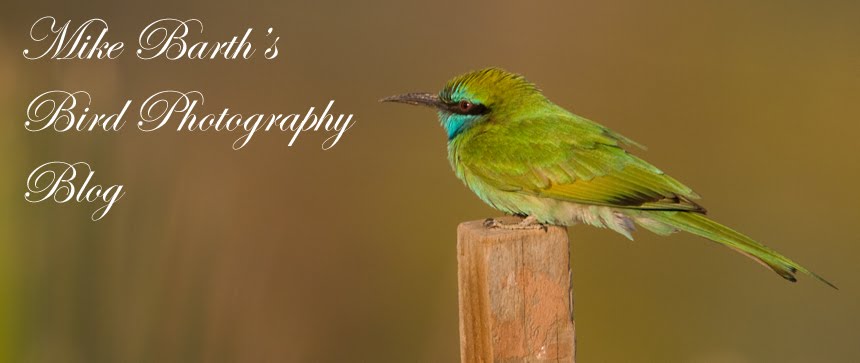In recent weeks the spring migration has started in the UAE. So far an exceptional spring for Wheatears, with large numbers of Isabelline and Pied Wheatears moving through, certainly many more than in recent years. In with these species we have also recorded Northern Wheatear, Eastern Black-eared Wheatear and the occasional vittata sub-species of the Pied Wheatear (which I have yet to catch up with).
Other birds of note are the numbers of Woodchat Shrike reported around the UAE, again in numbers that are high compared to recent years, I know I have seen more in the last couple of weeks than I have in the last 3 years.
Al Quaa Fodder field , south of Al Ain is the place to be it seems. On 10th March the following were recorded :
Pied Wheatear 100+
Northern Wheatear 15
Eastern Black-eared Wheatear 15
Isabelline Wheatear 50+
On the same day a little further south at Dhahira Fodder field more than 300 Pale Rockfinch were recorded, again very high numbers.
Shrikes continue to be a migration favorite, as mentioned earlier, Woodchat Shrikes have been seen in good numbers along with the more usual Turkestan, Daurian, Southern Grey and Steppe Shrikes.
White and Yellow wagtails are in abundance, as usual the Dubai Pivot fields hold good numbers of both. Yellow Wagtails are predominantly Feldegg and Beema s.sp. Also noted were the melanogrisea variant but I am not sure whether this is known as a true sub-species, your comments on this are welcome.
Another popular migrant site is the Sila Peninsular down by the Saudi Border about 4-5 hours from Dubai. Some of our more adventurous birders ventured down there, also on the 10th March. There they recorded amongst other things huge numbers of Hoopoe 100 +
Wheatears included Isabelline 40 , Pied 23 , Desert 8 , Northern 1 and Black-eared .
Shrikes included Turkestan 43, Daurian 9, Masked 1, Woodchat 20, Steppe Grey 18
All in all a nice start to the migration season - still looking out for those Megas !
Other birds of note are the numbers of Woodchat Shrike reported around the UAE, again in numbers that are high compared to recent years, I know I have seen more in the last couple of weeks than I have in the last 3 years.
Al Quaa Fodder field , south of Al Ain is the place to be it seems. On 10th March the following were recorded :
Pied Wheatear 100+
Northern Wheatear 15
Eastern Black-eared Wheatear 15
Isabelline Wheatear 50+
On the same day a little further south at Dhahira Fodder field more than 300 Pale Rockfinch were recorded, again very high numbers.
Shrikes continue to be a migration favorite, as mentioned earlier, Woodchat Shrikes have been seen in good numbers along with the more usual Turkestan, Daurian, Southern Grey and Steppe Shrikes.
White and Yellow wagtails are in abundance, as usual the Dubai Pivot fields hold good numbers of both. Yellow Wagtails are predominantly Feldegg and Beema s.sp. Also noted were the melanogrisea variant but I am not sure whether this is known as a true sub-species, your comments on this are welcome.
Another popular migrant site is the Sila Peninsular down by the Saudi Border about 4-5 hours from Dubai. Some of our more adventurous birders ventured down there, also on the 10th March. There they recorded amongst other things huge numbers of Hoopoe 100 +
Wheatears included Isabelline 40 , Pied 23 , Desert 8 , Northern 1 and Black-eared .
Shrikes included Turkestan 43, Daurian 9, Masked 1, Woodchat 20, Steppe Grey 18
All in all a nice start to the migration season - still looking out for those Megas !
Turkestan Shrike (Lanius isabellinus phoenicuroides)
Rufous-tailed Rock Thrush (Monticola saxatilis)
Woodchat Shrike (Lanius senator)
Steppe Grey Shrike (Lanius meridionalis pallidirostris)
Woodchat Shrike (Lanius senator)
Isabelline Wheatear (Oenanthe isabellina)
Pied Wheatear (Oenanthe pleschanka)
Pied Wheatear (Oenanthe pleschanka)
Woodchat Shrike (Lanius senator)
Woodchat Shrike (Lanius senator)
Yellow Wagtail (Motacilla flava beema) a.k.a Sykes's Wagtail
Yellow Wagtail (Motacilla flava melonagrisea) a.k.a White-chinned Wagtail
Isabelline Wheatear (Oenanthe isabellina)














No comments:
Post a Comment